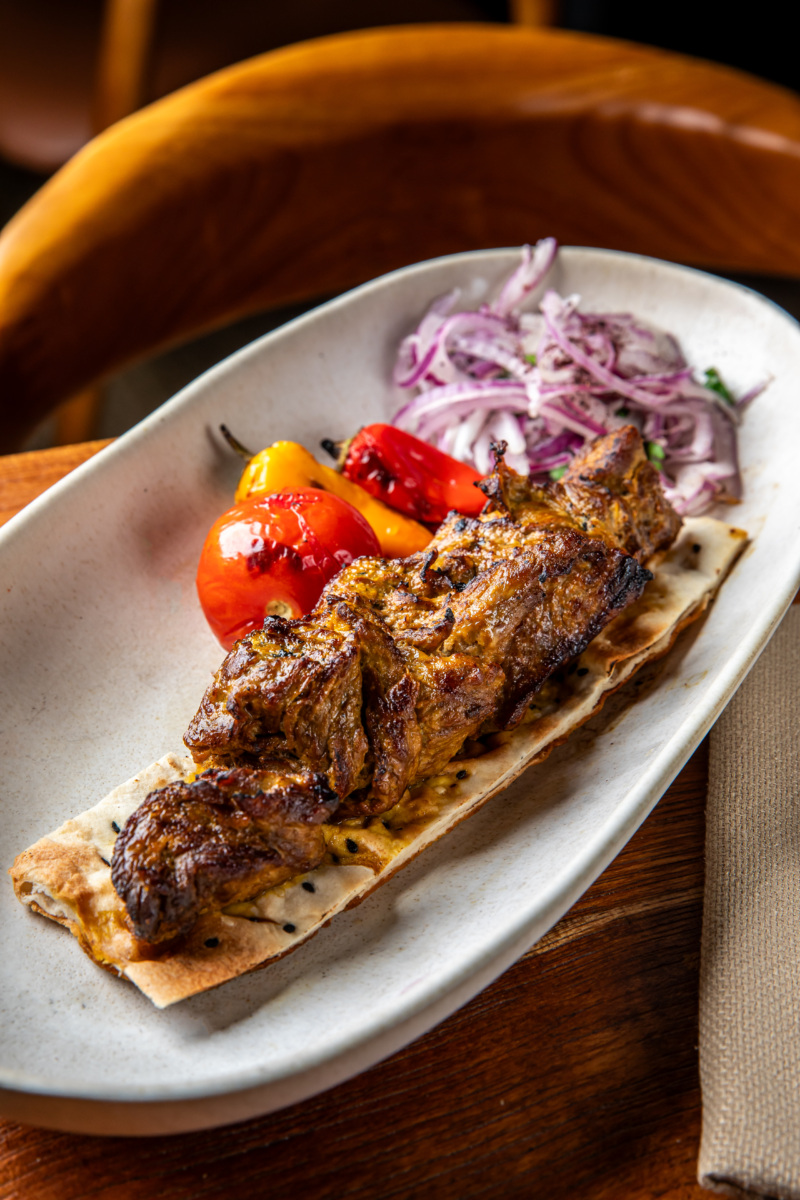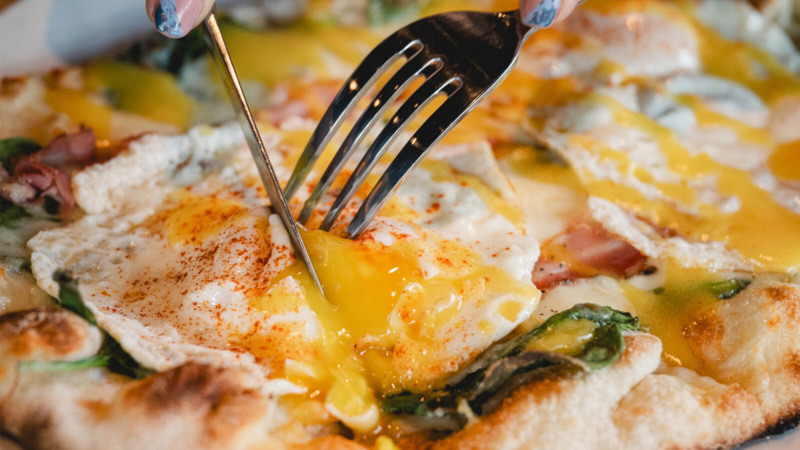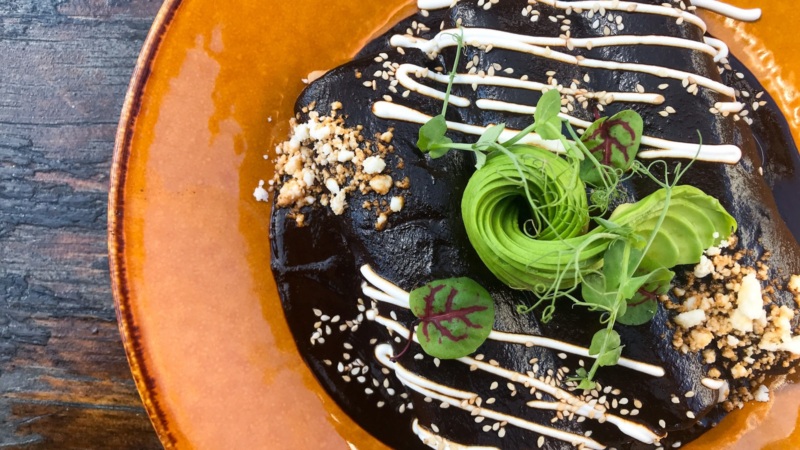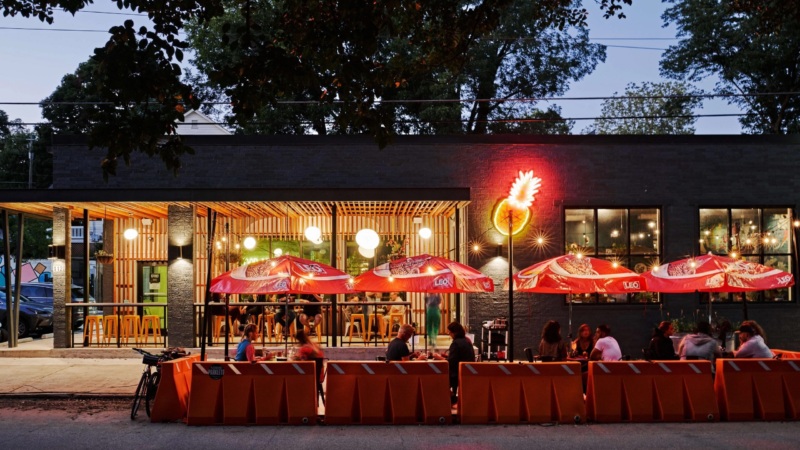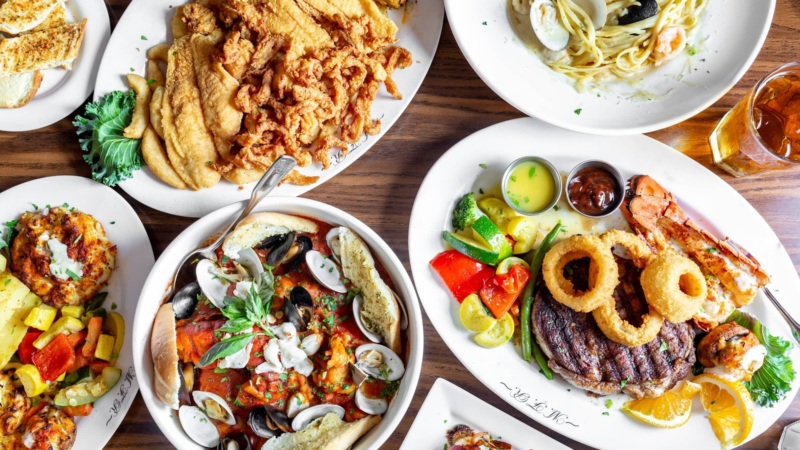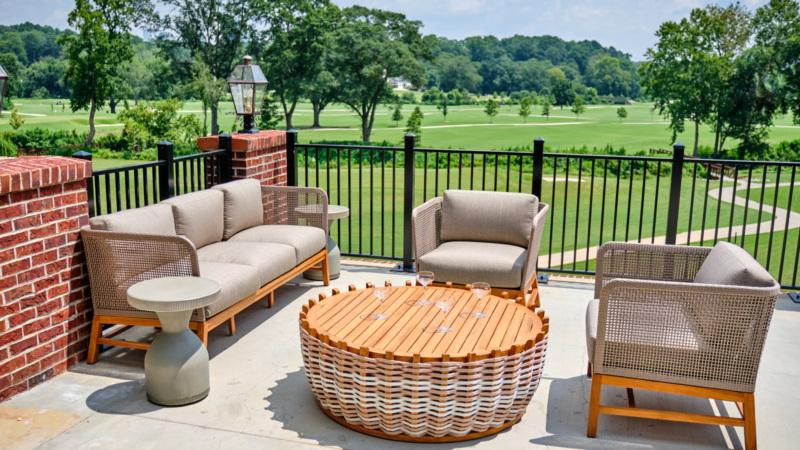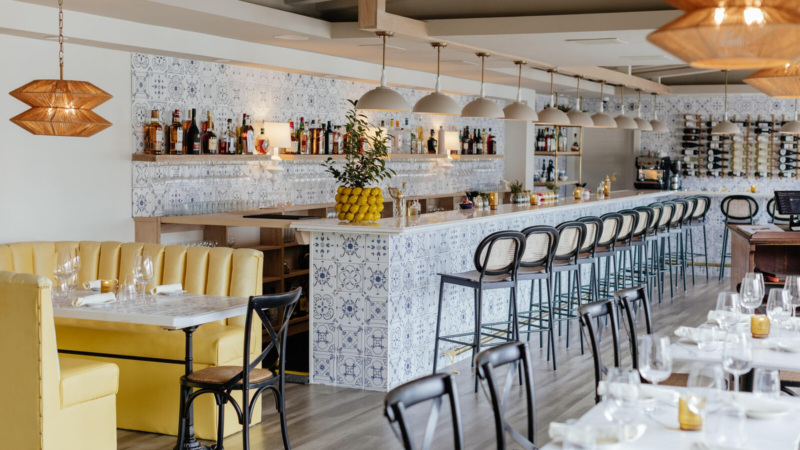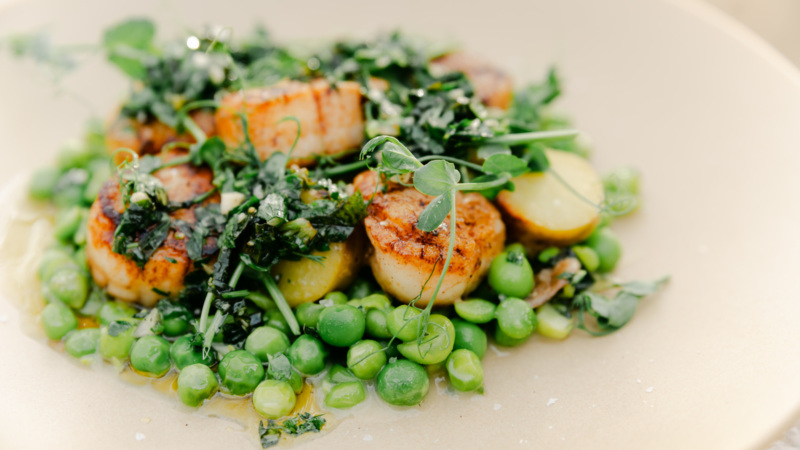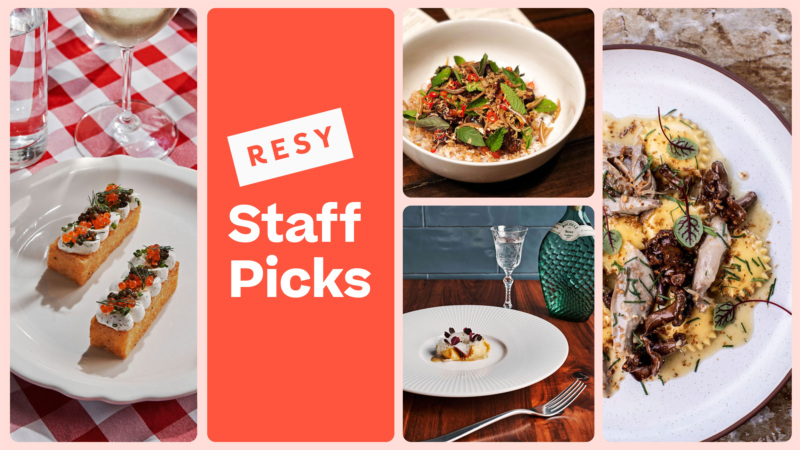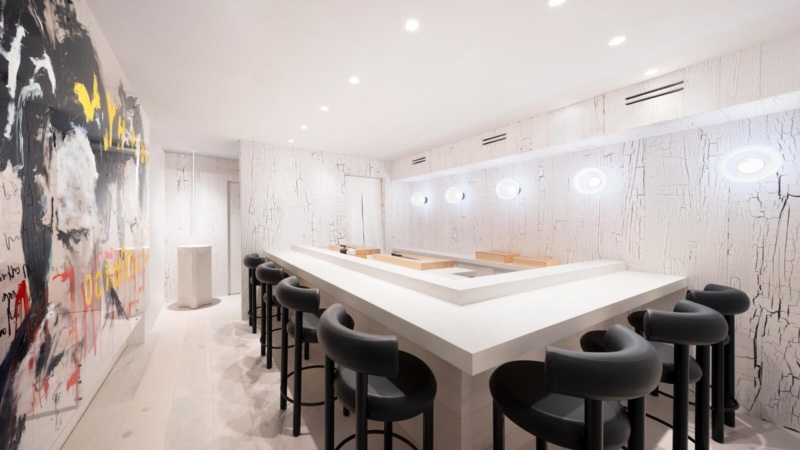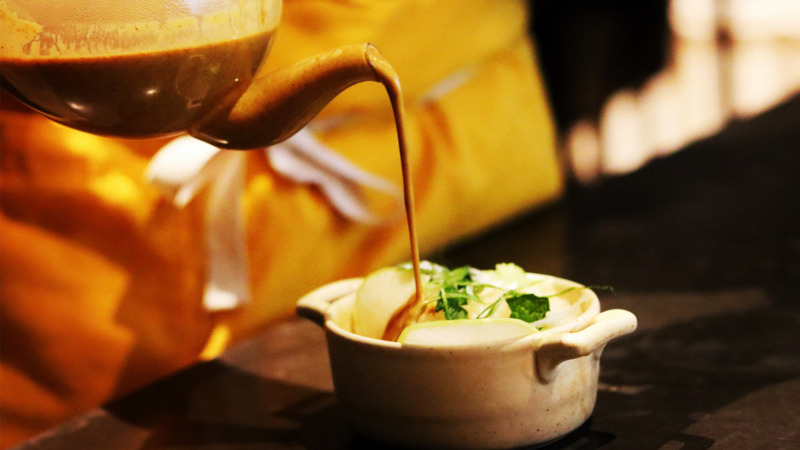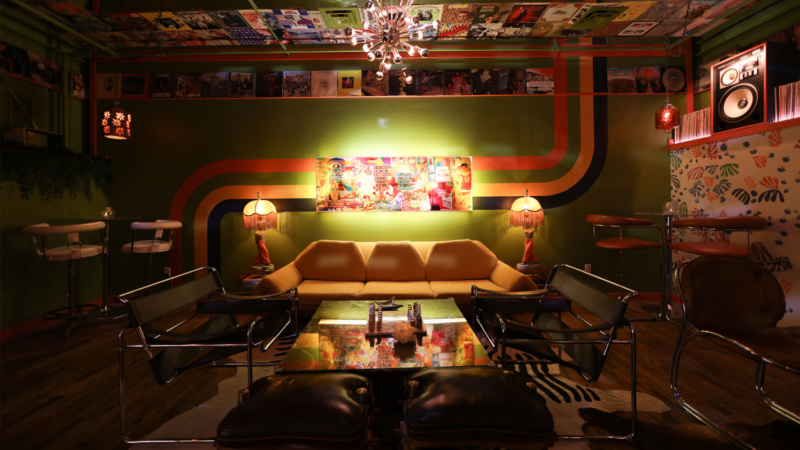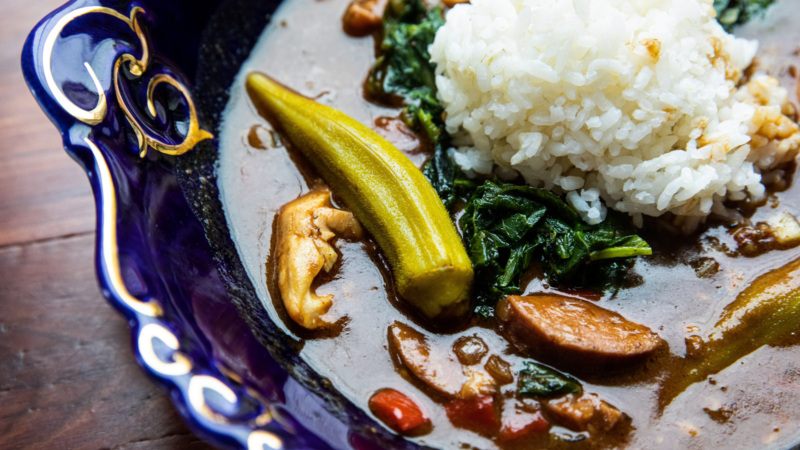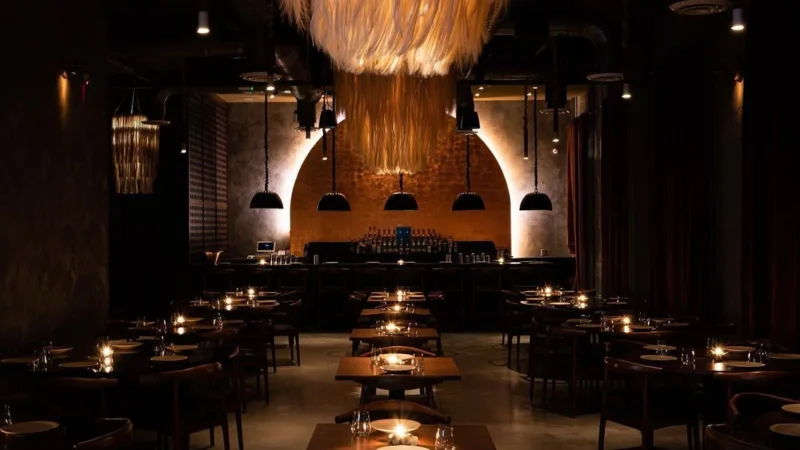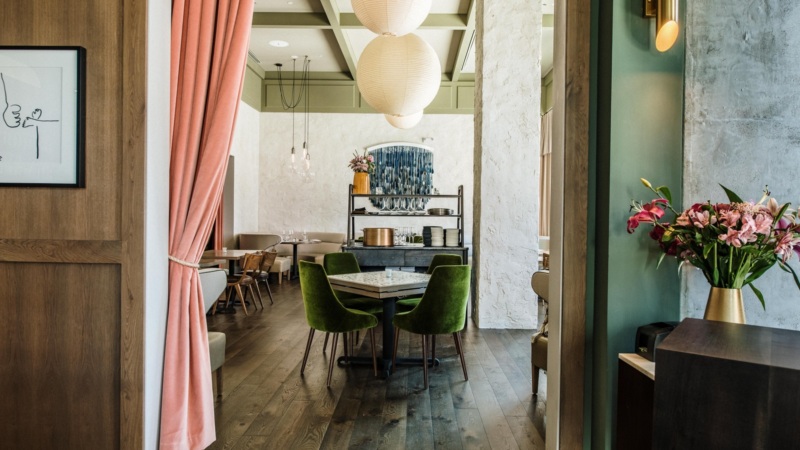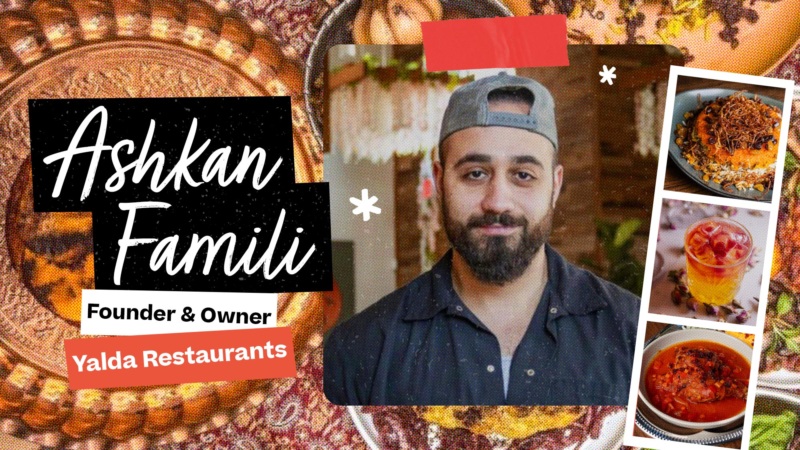
Stephen Satterfield's Corner Table Atlanta
Around the Tables at Delbar, You’ll Find Atlanta’s Diverse Threads
The American Express® Gold Card and Resy have teamed up with Stephen Satterfield, award-winning host of “High on the Hog,” to bring you Corner Table: a series of exclusive interviews with top chefs and restaurateurs from across the U.S. Discover the personal stories and inspirations of these culinary masters and see how their food is reinventing American dining culture.
Stephen Satterfield is an award-winning journalist, author, founder of Whetstone Media and Hone Talent Agency, and host of “High on the Hog” on Netflix. His book “Black Terroir” is due out in fall 2024.
In Atlanta, if you’re looking for Southern-style bites in the form of fried chicken or gravy-drizzled biscuits, you’ll find it. However, the Southeastern metropolis is more vibrant and multicultural than ever. Atlanta is home to people from around the country and around the world, bringing a richness in culture and food. And Delbar Middle Eastern is among the gastronomic gems shining light on the beauty of the city’s diversity through Middle Eastern food.
For chef and owner Fares Kargar, who began cooking at only seven years old, Delbar is an invitation to experience the Middle East through his own unique lens. The intention is apparent in everything from dishes — such as his lamb loin and saffron-laced salmon kabob — to the minimalist-meets-sophisticated décor inspired by Kargar’s home country, Iran.
“The food on the menu has a lot to do with my childhood and traveling around,” Kargar tells me. “It also has to do with whatever I enjoy. Besides traveling, I’ve done a ton of research to get to know each country, what they’re most famous for, and what the ‘wow’ factors are of the cuisine — and I see what I can do with those items on my menu.”
Kargar arrived in the United States in 2006 after leaving Iran at 17 to avoid the country’s mandatory military service requirement for men 18 or older. His family heritage as Bahá’í, a religious minority, meant he wouldn’t be allowed to attend college in Iran, and job opportunities would be limited. After Kargar fled to Turkey, he applied to come to the U.S. as a refugee to obtain a college degree. After a year of living in Atlanta, Kargar earned a degree in hospitality from Georgia State University.
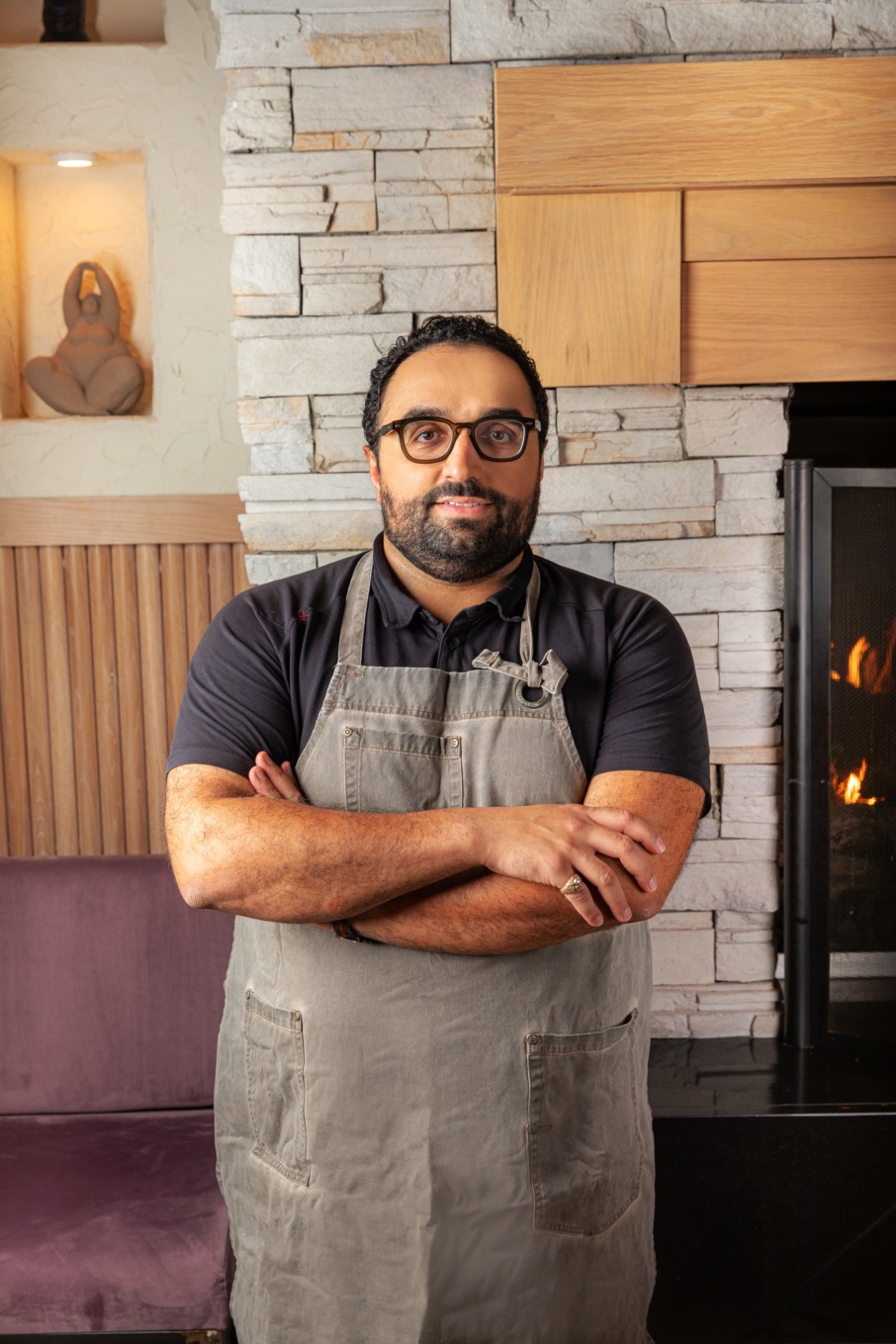

Then, after working in a few Atlanta restaurants, Kargar was inspired to open the flagship Delbar in 2020, in the burgeoning Inman Park neighborhood. Though it was far from the first restaurant to bring a taste of the Middle East to the city, few such restaurants have managed to bring diverse groups of people together to experience a cuisine that, to many Atlantans, is unique and unexpected.
On any given Sunday, you can walk into Delbar — whether the original or its outpost in Alpharetta, with a third coming soon to the Buckhead area — and find a broad sampling of Atlanta culture, from families celebrating after church to young singles lingering over brunch cocktails.
I chatted with Kargar about his journey from Iran to America and how his upbringing and roots have influenced his distinct prism on Middle Eastern cuisine.
Stephen Satterfield: You grew up in Iran and started cooking as young as seven. How did this early start influence you as the chef you are today?
Fares Kargar: It made me very food-oriented. The food you eat as a kid becomes a big part of your life. So, eating food that tastes like something I ate back home when I was younger gives me a nostalgic feeling.
When you moved to the States, specifically Atlanta, what was your first impression of the food scene?
When I moved here, I didn’t really understand the food scene in Atlanta because I didn’t have a car and had to finish high school. I come from a Iranian family; Bahá’í minorities like me in Iran, you’re not allowed to go to college. So, after finishing high school, you must go to mandatory military for two years. And you’re put through a lot of trouble when you go to the military. You get the worst kind of shifts, and they harass you a lot. So, all that, combined with being able to go to school and have a higher education, made me want to move.
The food you eat as a kid becomes a big part of your life. So, eating food that tastes like something I ate back home when I was younger gives me a nostalgic feeling.— Fares Kargar
What was your first restaurant gig in Atlanta?
My first restaurant job was at an Italian restaurant called Luciano’s. It was random. One day, I was picking up my paycheck from Kroger and saw a hiring sign. So, I went in and applied. I had no idea what kind of job I applied for because my English was still very rough. So, I got a job in the restaurant as a busboy, worked my way up, and stayed in that company until I became assistant GM.
What was the segue from working at an Italian restaurant to tapping into your roots with the cuisine you create now?
The biggest part was family, because I’ve always been around Persian food. My mom and everybody in my family are very good cooks. You could technically call them all chefs because they’re really good at what they cook. I lived in Turkey, dined in Ankara and Istanbul, and got involved with Turkish food. So, my interest in food was always there, but then there was a spark when I started working at Rumi’s Kitchen in 2013 — a Persian restaurant. As I was working there, I became even more exposed to Persian food. So, I started studying Middle Eastern food on my own.
That’s exciting! What was the a-ha moment when you realized Delbar was something that the local community would appreciate?
The a-ha moment happened when a lot of Middle Eastern restaurants across the U.S. started gaining recognition in 2017 and 2018. So, with this recognition of Middle Eastern restaurants, I realized it was about to blow up — because there’s nothing like it, and it hadn’t been a center of focus in American dining. Restaurants began being featured in places like Bon Appétit, The New York Times, and the Michelin guides. It made me realize that a big shift was about to happen.
Digestif: A Few of Fares Kargar’s Favorite Things
Delbar’s chef recounts some of the places and things that inspire him.
PLAYLIST SELECTIONS
I usually cook to Frank Sinatra songs. My favorite thing is usually jazz music of that era. Most of my cooking at home is not Persian — a lot of times, I’m cooking Italian food. And I listen to classics. I have a turntable in my kitchen, and I always turn it on when I start cooking.
FAVORITE DAY-OFF SPOTS
Spring in downtown Marietta. It’s a little far away, but it’s one of my main go-to spots. For breakfast, a favorite is Hen Mother Cookhouse. There’s also a French bakery called Le Bon Nosh. This place is just magnificent. It feels like home when we go there because we run into a lot of our regulars.
MUST-STOCK INGREDIENT
Zereshk. They’re dried berries from the drier areas of Iran. It’s something I grew up eating as a kid and harvesting with my grandma — but mainly consuming. (Laughs) So, it’s a sweet and sour barberry with a distinct profile. I love to use those in a lot of ways, like in rice dishes and drinks on the menu.
Do you have a favorite dish on the menu?
The lamb neck. It’s slow-braised with onion, saffron, cinnamon, and garlic.
Why is it special to you?
It has a unique flavor. There was a famous restaurant in Iran called the Kareem Brothers. Many restaurants in Iran are named after the people who own them. They were only famous for one dish, their lamb shank. So, that inspired the lamb neck, and it became one of my favorite dishes.
What inspired you to name the restaurant Delbar?
Delbar translates to “heart, captured” — something that takes your heart away. So, while creating Delbar and deciding what we wanted it to be and what we wanted to be translated to the guests, we came up with this name. I was researching a bunch of names and wrote them on paper. I’d go up to random people and ask them to read it to me just to see if they sounded the same way. Delbar was the one that stuck with people the most. It’s a big Farsi word, so everyone in Iran knows it. It’s very easy to pronounce and translates perfectly with our mission.
Tying in with your mission, when people experience Delbar, what do you hope guests will tell their friends?
Our goal is to make people feel like they’ve been transported — like they’re not in Atlanta anymore. That’s the goal we’re focused on creating from the ambiance, décor, music, and presentation of the food. The whole point is to make you feel like you’ve gone on vacation — and that’s the model we stand by.
Produced By

Project Credits
- Writing Stephen Satterfield
- Editors Gabrielle Pharms and Allison Robicelli
- Photographer Madelynne Ross
- Creative Director Celine Glasier
- Brand Liaison Marisa Dobson
- Writing Stephen Satterfield
- Editors Gabrielle Pharms and Allison Robicelli
- Photographer Madelynne Ross
- Creative Director Celine Glasier
- Brand Liaison Marisa Dobson









